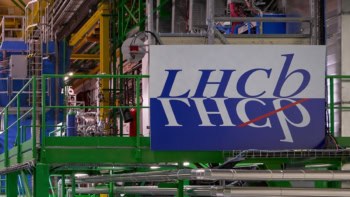
By Hamish Johnston in Canada’s Quantum Valley
“There’s no place like this in the world,” said Vadim Makarov (above) as we walked up to his lab at the Institute for Quantum Computing (IQC) at Canada’s University of Waterloo. What’s unique about the place, according to Makarov and others I spoke to in Waterloo, is that it brings together a diverse group of researchers (physicists, computer scientists, mathematicians, engineers, etc) in one place to develop quantum-information technology.
Makarov is an expert in “quantum hacking” and he and his colleagues are working hard to beat quantum-cryptography systems. While quantum cryptography is fail-safe in theory, the equipment used in real systems such as single-photon detectors is not perfect. Makarov and others have already shown that systems can be hacked. Those problems have now been addressed in commercial quantum-cryptography systems, so the IQC team is now trying to beat new-and-improved systems.
I’m afraid I can’t tell you what he is currently working on. When he discovers a loophole in a quantum-cryptography system, he first tells the manufacturer and gives them time to fix the problem before he publishes. You can see Makarov and his latest experiment in the photo above. Along with cryptography stalwarts Alice and Bob, we were joined by Schrödinger’s cat – or maybe that’s the Cheshire cat?
There will be more from the Quantum Valley as my tour continues tomorrow.



